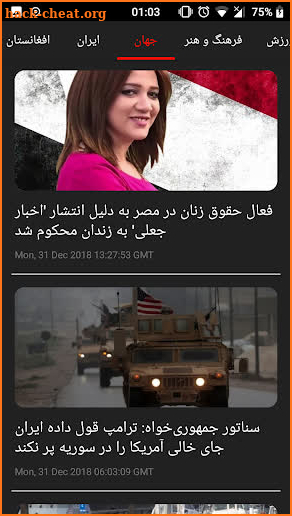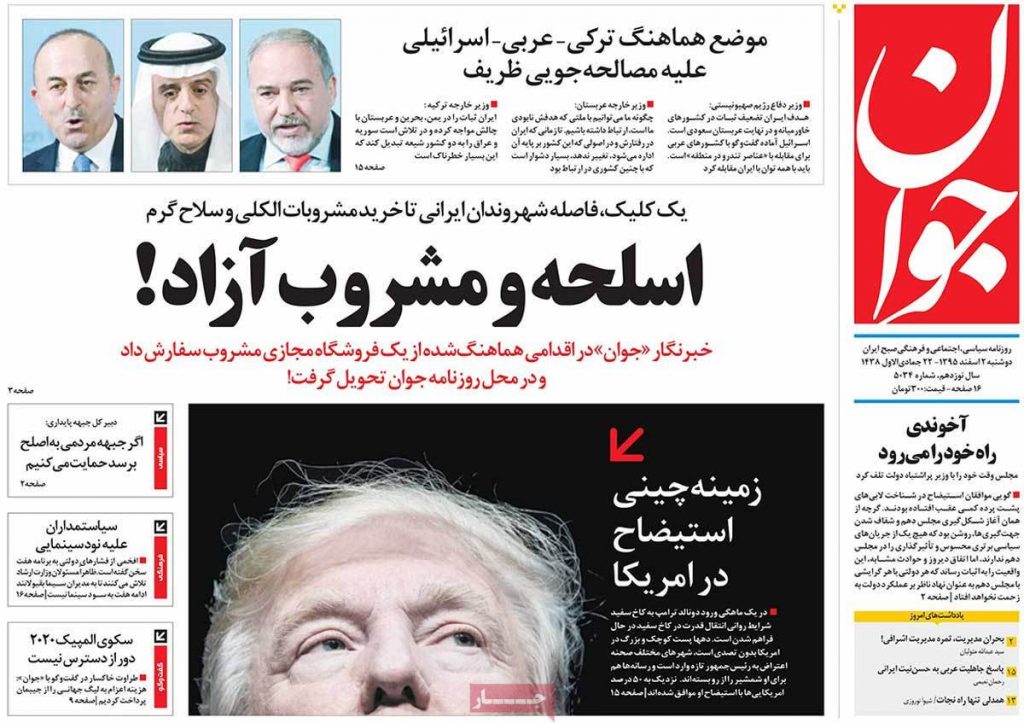

In an interview, Rafsanjani said that BBC Arabic and BBC Persian "act professionally, they have trained journalists and speakers and are well-informed in terms of sociology and public relations." His daughter, Fatemeh Hashemi, said that in his final years, he would listen to the BBC radio programs broadcast by satellite after prayers. In the section about the news coverage of the Iran-Iraq war in the 1980s, he claimed that the Islamic Republic’s successes in the conflict were downplayed. Rafsanjani mentioned the BBC in his memoir. Rafsanjani, Khamenei Were Regular Listeners The broadcast of this interview in 2008 sparked controversy, and the interviewer, Emaduddin Baghi, and other people involved in it were subsequently arrested. Montazeri did not address this issue during his interview with BBC TV. Government media accuse Montazeri's office, but his son (Ahmed Montazeri) has stated that those “who wanted to depose" his father "gave the letter to the BBC to pressure Ayatollah Khomeini to take action.” There are conflicting claims about the source of the letter. In recent years, state media have repeatedly cited scholar Ayatollah Hossein Ali Montazeri’s letter about executions, which was broadcast on BBC on March 1989, as a reason for Khomeini's decision to dismiss him from his post as chief of staff.Īccording to Akbar Hashemi Rafsanjani's memoirs, this issue had been ongoing for several weeks. Listening to the BBC radio was also a part of the daily routine for other Islamic Republic officials. Listening to BBC radio in the morning and at night became a regular practice for Khomeini and other officials of the Islamic Republic. The BBC defended itself by stating that the program also covered Mohammad Reza Shah Pahlavi's statements.Īfter the revolution, the media in the Islamic Republic attempted to label the BBC as an opponent of the revolution, although they still recognized its role.Īkbar Hashemi Rafsanjani commented on the radio station, saying, "During the revolution, they were supporters of the shah, but the news they provided was harmful to his regime, and many times their news was also harmful to us." During the revolution, his last ambassador to London, Parviz Raji, objected to the airing of Khomeini's speech on November 23, 1978, which was broadcast by the BBC. One of the most significant interviews with Khomeini before the 1979 Islamic revolution was conducted by the BBC, and there have been numerous debates about the radio station's role in the revolution.Īccounts suggest that even the shah was sensitive to the BBC's broadcasts. This has created a unique atmosphere where opponents refer to the station as "Ayatollah BBC.”

But in recent years, critics of the government have also scrutinized the performance of BBC Persian. One of the most controversial interviews conducted by BBC’s Persian was with Ali Akbar Nateq-Nouri during the 1997 presidential election campaign.ĭuring the presidency of Mahmoud Ahmadinejad, the government strongly criticized the BBC. Still, military officials occasionally violated the resolution and gave interviews to the station. One of Khomeini's most famous interviews was conducted by the BBC, and some consider it has played a big role in the victory of the 1979 revolution.ĭespite this, the relationship between the Islamic Republic’s authorities and BBC Persian remained strained after the revolution, as it was during the monarchy.Īt one point, the Supreme National Security Council of the Islamic Republic passed a resolution prohibiting officials from giving interviews to Persian-language media, including BBC Persian. The last king of Iran, Mohammadreza Pahlavi, viewed the station with suspicion, indicating its significance for both sides. The radio station was a crucial source of information for Ayatollah Ruhollah Khomeini, the founder of the Islamic Republic, and other officials who relied on it for their daily political updates.

The BBC’s Persian radio service, one of the oldest Persian-language media, went off the air after 82 years of broadcasting.


 0 kommentar(er)
0 kommentar(er)
